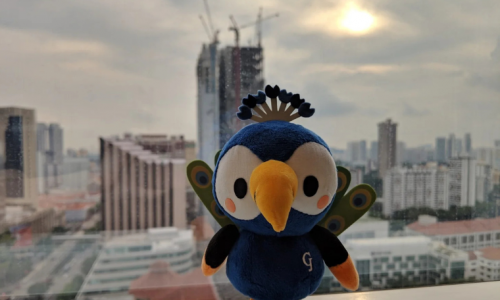Hello! My name is Tsujimoto, and I work for a media company in Singapore. Good Job Creations (GJC) invited me to write an article for them, and I look forward to sharing my experiences with you.
After graduating from university, I began my career as a salesperson at a major electronics manufacturer in Japan, where I worked for nearly three years. A year ago, I decided to move to Singapore and work for a media company in a similar role.
Although working for a well-known company in Japan was rewarding, I chose to relocate to Singapore to better align with my career goals. This change has positive and negative aspects, and I’d like to share five critical differences between the working style in Singapore and Japan that I’ve observed over the past year.
1. Commuting Times: Short and Sweet
One of the first things I noticed was the difference in commuting times. Singapore is a small country where you can travel anywhere within 30 minutes by car from the city center. My daily commute takes about 15 minutes, which is relatively short compared to my colleagues.
In Japan, my daily commute involved over an hour on crowded trains. This drastic reduction in commuting time has decreased my stress levels and freed up an extra two hours each day, allowing me to sleep more and pursue my hobbies.
2. Work Efficiency: Swift and Smooth
Singaporeans are known for their efficiency, evident in their communication methods. WhatsApp, a popular messaging app, is frequently used for business communications within and outside the company. This contrasts with Japan, where emails and formalities are more common.
It is common for someone you have just exchanged business cards with to send a WhatsApp message, making it a widely used means of communication in the business world. Even within the office, I often communicate with colleagues just a few meters away using Google Hangouts rather than speaking directly. This emphasis on speed and convenience contrasts Japan’s more formal and emotion-conscious communication style.
3. Sense of Time: Flexible and Balanced
Time management in Singapore is quite different from that in Japan. Meetings and appointments often start later than scheduled, which initially confused me.
In Japan, punctuality is strictly observed, while in Singapore, start and end times are more relaxed. This experience made me reconsider my attitude towards time, realizing that my strictness might have been excessive.
In terms of other aspects of time, I’ve heard people say things like “I’m busy” and “I don’t have time” more often since coming to Singapore. In Japanese sensibilities, when people hear “busy” or “no time,” they imagine working without sleep and still have no time.
However, in Singapore, many people say they are “busy” or “no time” if they don’t think they can finish their work by the regular time. I have often seen colleagues say, “I’m so busy, so busy,” in a hurry, only to notice after regular working hours that they have already gone home.
At first, I couldn’t hide my surprise, but now I understand that many people draw a clear line between work and private life and are thorough in not working outside of working hours. This balance is a typical Singaporean sensibility, emphasizing efficient work completion and maintaining work-life balance.
Of course, some people work overtime or on weekends when needed, such as during busy periods or emergencies. Generally, everyone is enthusiastic about their work, so it feels good if you leave right on time.
4. Attitude Towards Foreigners: Inclusive and Diverse
Singapore is a multicultural society where foreigners make up about 30% of the population. My colleagues come from diverse backgrounds, including Southeast Asian, East Asian, and Western countries.
Even if my English isn’t perfect, clients and colleagues focus on the content of my proposals rather than my language proficiency. This inclusive attitude makes the working environment very comfortable for foreigners.
Suppose I think about it from the opposite perspective. If a foreigner came to Japan to sell something in broken Japanese, the attitude of accepting foreigners is more deeply ingrained in the people’s psychology than in Japan.
First, there are people with various backgrounds, such as Chinese, Malay, and Indian, so it may be natural, but I feel that a diverse environment is comfortable for foreigners. The diversity is evident at work and in my personal life, as I share my living space with people from Korea, China, Indonesia, and Singapore.
5. Role and Responsibility: Impactful and Rewarding
Working in a smaller organization in Singapore, I’ve found that my contributions significantly impact the company’s success. Unlike my previous job in a large Japanese corporation where individual influence was minimal, my current role allows me to see the direct results of my efforts. This environment is stimulating and motivating, pushing me to strive for excellence.
My sales performance is directly reflected in the company’s performance, so I have a significant role to play, which makes my job very rewarding. The more I achieve results, the more the company needs me. Conversely, if I don’t achieve results, I may be fired. Therefore, I work hard with the spirit of “try to fire me if you can,” and other employees work with the same mindset.
Working in such an environment is very stimulating and different from working in Japan. Personally, I think this is the biggest difference. This is more a personal choice of company than a difference between countries, but there is no doubt that I chose this company because I decided to work in Singapore.
Embracing Change: Insights from a Year in Singapore
After working in Singapore for a year, I noticed these five major differences. Of course, there are many other differences that I couldn’t cover, and even now, a year later, I am still discovering something new every day.
By understanding the background of these differences and considering whether the good aspects of Singapore can be incorporated into Japan, you can enjoy these differences without feeling confused or pessimistic. I hope my insights will be helpful for those considering working in Singapore.






